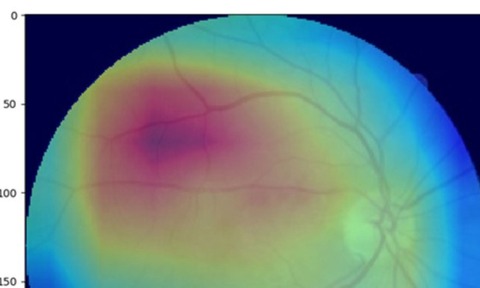Study reveals the eye is the window to the heart
3 Aug 2025

Routine eye scans could help identify major coronary illness up to a decade early, concludes research supported by two leading health organisations.
Digital snapshots of the back of the eye will enable simple tracking of an individual’s cardiovascular risk over time, said research leader, British Heart Foundation research fellow at the University of Dundee and consultant cardiologist Dr Ify Mordi.
The British Heart Foundation and National Institute for Health and Care Research (NIHR) supported study, outlined in Cardiovascular Diabetology, said the scans offered up to 70% accuracy in predictions.
“It may be surprising, but the eyes are a window to the heart. If there is damage or narrowing of the blood vessels at the back of the eye, there is a good chance that will also be seen in the blood vessels further inside the body, supplying the heart, which could lead to a heart attack or stroke,” explained Mordi.
“This is a one-stop scan which is routinely performed and takes less than a minute. It could be an important part of the package, alongside blood pressure and cholesterol checks, in identifying people who could benefit from medication or lifestyle changes.”
Thanks to AI technology developed and tested at Dundee university, real time scan analysis took a fraction of a second to produce, said the scientists. This created the potential for personalised risk prediction that can be relayed to patients and GP almost immediately by smartphone and other means after routine eye tests.
The AI was instructed to look for red flags such as blood vessel narrowing, blockages and damage, which indicate potential heart problems before searching chosen detail such as the size or arrangement of blood vessels.
A total of 4,200 archived images were employed to test the technology’s accuracy in identifying those people who went on to have a heart attack or stroke or die from cardiovascular disease over the next decade. It predicted 70 per cent of cases when tested on eye scans from more than 1,200 individuals, claimed the study.
Of the sample, some had undergone a second scan three years later. Researchers found links between changes in risk score and greater odds of a major cardiovascular event.
Analysis of how risk scores identified by AI changed in the period revealed that the one in five of the scan group who showed the largest increase in their risk score had a 54 per cent higher risk of a major cardiovascular event than others in the group.
This greater risk was seen even in people whose AI score increased by as little as three per cent.
The team also compared the AI’s predictions with routine GP health check predictions based on factors such as age, sex, blood pressure reading, cholesterol level and smoking. It revealed the risk score and retinal scan approaches identified almost exactly the same proportion of people at risk.
When clinical risk scores and retinal scans were combined with a further genetic test, accuracy rose to 73 per cent.
The AI tool was trialled specifically on people with diabetes, who received routine retinal scans on the NHS to check for complications affecting the eyes. But researchers maintained that such analysis of blood vessels in the eye to judge cardiovascular risk should apply in most other cases.
The study was a collaboration at the University of Dundee between clinical researchers who trialled the technology, including Mordi and Dr Alex Doney, together with computer scientists led by professor Emanuele Trucco and Dr Mohammad Syed, who developed the AI technology.
Chief scientific and medical officer at the British Heart Foundation professor Bryan Williams commented that, while further research was required, more accurate detection of risk would improve disease prevention.
"Cutting-edge innovations, like the use of retinal scans alongside health checks, could play a role in improving risk prediction, which is important if we are to reach the British Heart Foundation’s goal to prevent 125,000 heart attacks and strokes in the UK by 2035,” he said.
Pic: Retinal eye scan AI image (British Heart Foundation)

